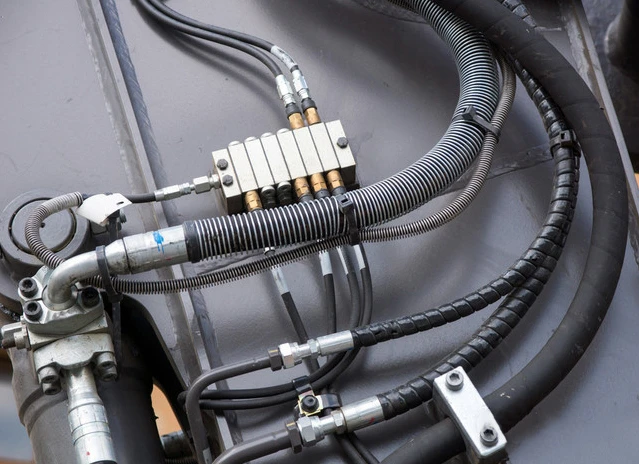Finding the right oil line hose for your automotive or industrial needs can often be a complex task, given the vast array of products available on the market. From durability to material composition, selecting an oil hose involves consideration of numerous variables, all critical to ensuring efficient and safe operations.
In recent years, advancements in materials science have transformed oil line hoses from merely functional components into highly engineered parts that offer remarkable longevity and performance. These innovations underscore the importance of choosing a hose that not only fits your specific application but also aligns with professional standards and practices.
One prominent factor that technicians and engineers must consider is the material of the hose. Traditional rubber hoses are being replaced by synthetic compounds that offer superior resilience to extreme temperatures and pressures. For instance, hoses made with ethylene propylene diene monomer (EPDM) provide excellent resistance to the wide temperature range typically encountered in automotive engine compartments. This shift acknowledges the demand for adaptable materials that can maintain structural integrity over diverse operational conditions.
Moreover, the internal reinforcement of oil line hoses is another crucial aspect. Hoses reinforced with high-tensile steel braiding or polyester provide enhanced functionality, reducing the risk of ruptures under high pressure. This feature is essential not only for maintaining system efficiency but also for preventing leaks that might lead to costly downtime or environmental hazards. Such advancements in internal reinforcement technology reflect a growing focus on safety and reliability within industrial and automotive sectors.
Coupling these hoses with the right fittings is paramount for ensuring a secure connection. Industry experts often recommend crimped fittings over clamped ones due to their ability to create a consistent, leak-free seal. Expert technicians emphasize the significance of matching the fittings and hoses from trusted brands, as this compatibility ensures optimal performance and minimizes risks associated with mismatched components.
The topic of hose maintenance cannot be overlooked, as it plays a pivotal role in extending the life of oil line hoses. Regular inspections for signs of wear, such as cracks, bulges, or any form of distortion, are imperative. Routine maintenance, conducted by professionals who adhere to industry standards, not only enhances the longevity of the hoses but also ensures safety and operational efficiency.oil line hose
For industries where chemical exposure is frequent, selecting hoses with specialized chemical resistant linings can mitigate potential damage. Fluoroelastomer linings, for example, cater to environments rich in hydrocarbons, ensuring the hose's integrity and performance over extended periods of use. This specificity in hose selection speaks to the importance of understanding the chemical interactions within the working environment to avoid premature hose failures.
Turning to the showcases of successful integrations, companies have reported significant reductions in maintenance costs and downtime by investing in high-quality oil line hoses, specifically tailored to their operational needs. This data supports the argument that the initial higher expense of superior hoses is offset by long-term savings and enhanced efficiency.
Ultimately, consulting with experts when selecting an oil line hose is vital. Industry consultants and seasoned professionals bring invaluable insights, guiding the selection process with experience-backed recommendations. Their expertise helps industries make informed decisions that bolster system reliability and operational success.
Recognizing the dynamic innovations within the realm of oil line hoses, businesses must pivot from opting for traditional, low-cost options and instead prioritize the advanced engineering and materials that define today's high-caliber hoses. This paradigm shift not only promotes greater safety and efficiency but also aligns with sustainable practices, reducing waste and environmental impact through longer product lifespans.
While the choices may seem overwhelming, the evolution of oil line hoses embodies a significant leap toward enhanced performance standards. Thus, taking the time to understand these advancements and collaborate with experts can set your operations apart, ensuring that your choice of oil line hoses is not just a component, but a cornerstone of your system's success.
OUR LATEST NEWS
Strict quality control strict production team to ensure stable products quality. Scientific personnel management, efficient production arrangements to ensure our timely delivery.























